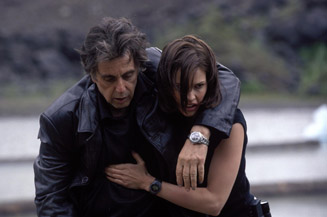|
|
Viking Night: InsomniaBy Bruce HallAugust 19, 2014
Because that’s how it happens in movies, after 20 minutes on the case, Dormer immediately determines that the killer is male, is familiar with police procedure, and was well known to his victim. The list of suspects is quickly narrowed down to two people - the victim’s boyfriend and an unknown individual of obvious financial means. As the investigation expands, Dormer discovers that they’re so far north that this time of year it never gets dark. Morning, noon, and midnight – it’s all the same. That’s a hard thing to take for a man whose life is already wearing at the seams. The police set a trap for the killer, successfully luring him back to the scene of the crime – a fog-shrouded cabin in the woods. Things go wrong when in the mist and confusion, burdened by fatigue, Dormer accidentally shoots his partner. With all that’s happened, he knows it will look bad - so he pins the shooting on the man they were chasing. Torn apart by guilt, driven by insomnia, he presses on, only to receive a call from a man identifying himself as the killer, claiming he witnessed the accidental shooting. The killer insists he didn’t mean to do what he did – it was a crime of passion. Now, both men are under suspicion for what he sees as a tragic but “honest” mistake. The implication is that he and Dormer can help each other.
|

|
|
|

|
Friday, November 1, 2024
© 2024 Box Office Prophets, a division of One Of Us, Inc.


